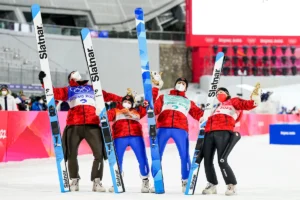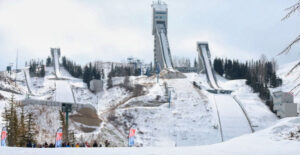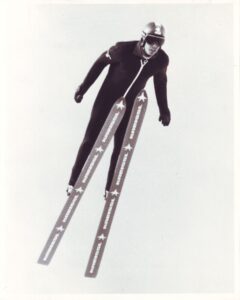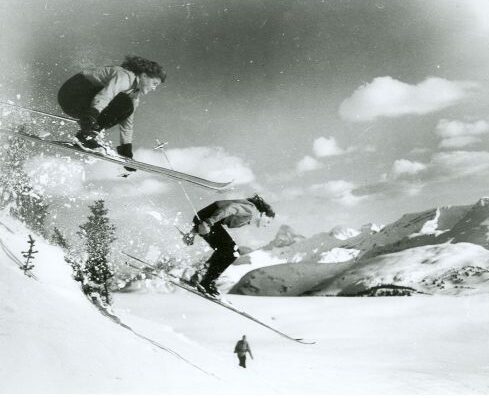Sharing the stage with the Crazy Canucks
Over a career that spanned 14 years, Horst Bulau knew the thrill of victory, having collected 13 World Cup wins and challenging for the coveted overall title. During his best years, Bulau shared the snowsports stage with the original Crazy Canucks; his wins amount to more than the legendary downhillers combined.
Bulau was famous in Europe long before his achievements were fully appreciated in Canada. His outstanding career spanned from 1978-92, during which time he competed in 129 World Cup events producing 13 World Cup wins with 26 podium finishes. He was consistently world-ranked second or third during most of his career. The 1982-83 World Cup season was dominated by Bulau and the Flying Finn Matti Nykanen and together they won 17 of 25 events on the circuit, battling for the overall title where Nykanen beat Bulau by 10 points.
As Bulau shares his memories, it’s clear he has a laundry list of accomplishments: “Being at four Olympics, that stands out for me,” he says. “Winning on the World Cup circuit 13 times. My first win in Garmisch, January 1, 1981. [And coming in] third overall twice and second overall once in the World Cup.”
Still, his success abroad failed to inspire the same excitement at home, despite a massive global following. But when the Canadian ski jumping team won a bronze medal in the mixed team event at Beijing 2022 – the first ever Olympic ski jumping medal for Canada – nobody was more surprised, and excited than Canadian ski jumping legend.




